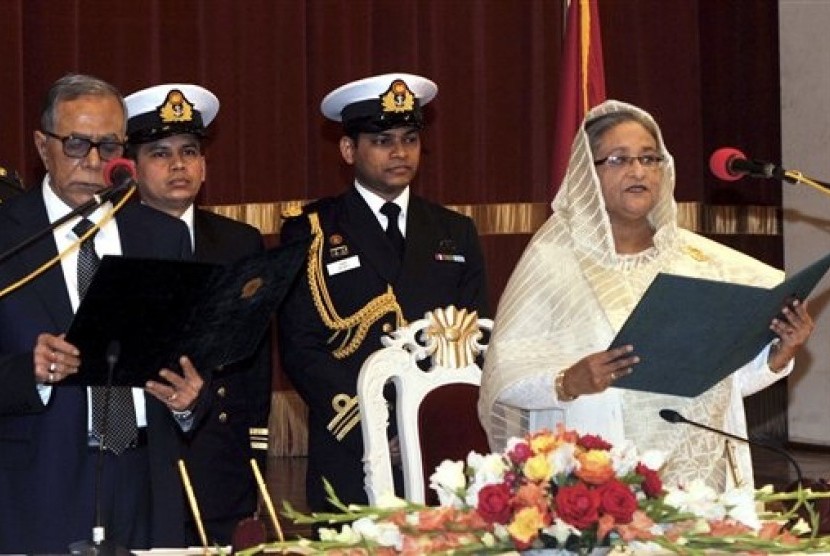REPUBLIKA.CO.ID, DHAKA - Sheikh Hasina was sworn in Sunday for her second straight term as Bangladesh's prime minister and third overall, following one of the most violent elections in the country's history.
Hasina took the oath of office a week after her Awami League party won an election marred by street fighting, low turnout and an opposition boycott that made the results a foregone conclusion.
President Abdul Hamid also swore in 29 Cabinet ministers and 19 deputies. After she was sworn in, Hasina, who also served as prime minister from 1996-2001, said she would work to uphold democracy and would not hesitate to take any measures if a consensus was reached.
The election was one of the deadliest since Bangladesh's 1971 independence, as an opposition alliance led by former Prime Minister Khaleda Zia, Hasina's archrival, attempted to derail the vote by calling weeks of strikes and blockades.
At least 18 people died in election day violence, and more than 100 polling centers were set on fire. Since last February, at least 300 people have died in political violence.
Zia, leader of the opposition Bangladesh Nationalist Party, or BNP, was absent from the swearing-in ceremony at the presidential house in the capital, Dhaka. Many Western diplomats attended the ceremony despite a call from the United Nations, the United States and the European Union for an inclusive election.
The election boycott by Zia's party means Hasina's new government will have no strong opposition in Parliament. The BNP has vowed to continue trying to force Hasina to step down and allow a caretaker government to oversee a new election in which the opposition party would take part.
The political gridlock plunges Bangladesh deeper into turmoil and economic stagnation. The country also is struggling to reinvigorate its 20 billion USD garment industry, which has been hit by a series of horrifying disasters — including a factory collapse last April that killed more than 1,100 workers.


